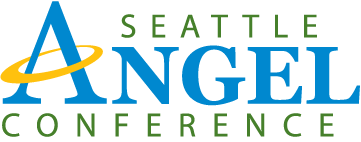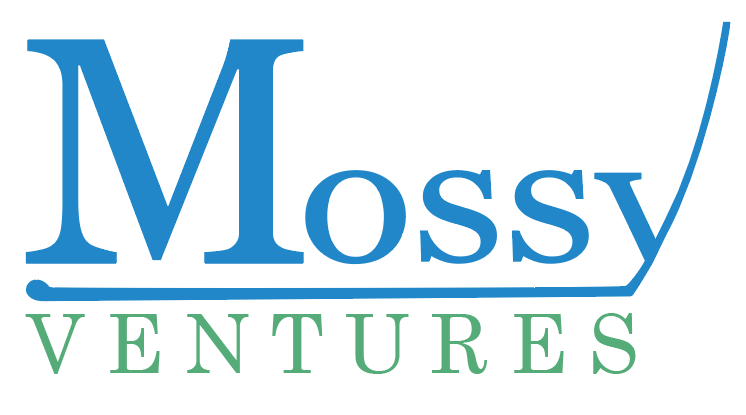If your startup is raising an early seed round this spring, the Seattle Angel Conference is a perfect springboard to meet investors and fine-tune your message. And offers a chance to win $200k investment!
Q: To start, could you please shortly introduce yourself?
A: I just joined the Galvanize team as member success manager. My role as such is to make sure that startups here have access to the right resources to grow. What that means is that I try to ensure that Galvanizes’ mentorship programs and events are tailored to the problems that founders face daily. Before Galvanize, I spent the last two years creating and running an innovation hub/early stage incubator, called 42 Accelerate, within the nonprofit coding school 42 Silicon Valley. 42 Accelerate was all about helping founders go from Ideation to MVP. Before that, I had a startup called Zimetry.
Q: You just moved from Silicon Valley to Seattle. Could you talk some about how the startup ecosystems are different?
A: For once, startups at both places have very different goals. In Silicon Valley, for a long time, the philosophy has been to use massive amounts of money early on without any potential of profitability for 8-10 years. The goal was to first get as many active users as possible, and then to figure out how to monetize the business. This approach seems outdated though, and I think Seattle is ahead when it comes to teaching the new startup philosophy – the “Lean Startup”-approach. According to “Lean Startup,” the goal of monetization should be a high priority very early on. Silicon Valley, on the other hand, is very strong in understanding the value of customer feedback. Most founders there embrace talking to customers at every step along the way. Other than that, the kinds of startups in the two ecosystems are very different. In Seattle there are much more B2B startups while Silicon Valley is very consumer-focused.
Q: Could you talk some about the value Galvanize provides to its member founders?
A: Most coworking spaces have some sort of focus, and ours is on startups. What makes us unique, I think, is the customization of our programming and our efforts to understand the founder’s needs. My position, “member success,” for example, is not a position that exists in other coworking spaces. Other benefits are: We regularly host community events here, like the Open Coffee that takes place every Tuesday morning. We organize internal events for our members that are tailored to the problems founders currently face. We have about 30 mentors on campus. We have partners who are willing to offer free legal advice, marketing advice, etc. We can introduce our members to people in our network, like product managers or senior engineers for example.
Q: You mentioned before that part of your role with Galvanize is to understand what problems entrepreneurs are facing. Could you talk some about what you have discovered so far?
A: The two things founders who I have talked to struggled with the most were hiring and sales. For tech companies, hiring is naturally one of the biggest challenges. Here at Galvanize, many companies are in their series A range and are hiring for the first time. People say that the first 20 employees a founder hires determine the success of his company. This explains why hiring is such an important topic among founders here. Another aspect many founders struggle with is sales. Often, technical founders have not found themselves in a sales role before, but they might not yet be in the position to hire someone else. For this reason, many of our members are in the challenging position that they must learn how to pitch their company and sell products. Talking about problems founders face, investor access was not mentioned as often as hiring and sales, but some founders still brought this up as well. Seattle is strong in angel and series A investing, but when it comes to series B, there seems to be a gap in funding. My advice for startups regarding this is to start networking and practicing early on, 6 months before even looking for an investment in example. During this time, a startup can learn from feedback and build relationships with investors. Some additional aspects that weren’t brought up by founders but that I observe as issues are: As mentioned earlier, I think most founders in Seattle do not fully use the potential of customer feedback. Also, cofounder problems are frequently the reason why a company doesn’t work out. To avoid cofounder problems, a founding team should take the time to get to know each other very well; they should take time to discuss their goals and expectations, and they should possess complementary skills.
Q: Did startups bring up problems in their relationship to angel investors at all?
A: In Seattle I have not heard such complaints yet. I think though that founders should search for angels who try to help with their expertise and network in addition to the investment. At the same time, you want the investor to not control the execution to the point where it slows down decision-making. I think communication is important in the relationship between founder and investor and the terms of the investment should be clear to both sides from the beginning. I recommend founders to screen investors just as much as investors screen startups before committing to the relationship.
Q: What is your conclusion from all that you have experienced about the startup ecosystem in Seattle so far?
A: I think that Seattle is in a great position going forward. Like I said, I think it is good that many preach the “Lean Startup” methodology here. Especially the talent this area has in cloud services will provide many opportunities going forward. I also have been surprised by how connected the startup community is here in Seattle. Here are some things I learned from this interview: Many founders struggle with hiring and sales, but also investor access and cofounder problems are relevant issues. Seattle’s founders could embrace customer feedback more. Founders should interact with investors much earlier than when looking for funding. In the interview Josh mentioned some resources and organizations he finds helpful, find out more about them here
Galvanize: https://www.galvanize.com/campuses/seattle42
Silicon Valley: https://www.42.us.org/
Zimetry: https://www.linkedin.com/company/zimetry/about/
Open Coffee: https://www.meetup.com/de-DE/Seattle-Startups-Open-Coffee/members/5089344/?op=&memberId=5089344
If your startup is raising an early seed round this spring, the Seattle Angel Conference is a perfect springboard to meet investors and fine-tune your message. And offers a chance to win $200k investment!
The best way to start early stage investing is to learn by doing. The Seattle Angel Conference is built for just that.
Seattle Angel Conference (SAC), a production of Mossy Ventures, announces the SAC 22 winners of the business competition investor education program. Seattle Angel Conference (SAC), a production of Mossy Ventures, announces the SAC 22 winners who have participated in an progressive elimination program that started with 80+ early stage startups. On November 16, six finalists […]

